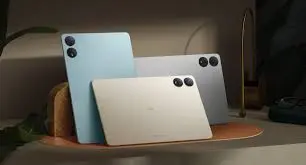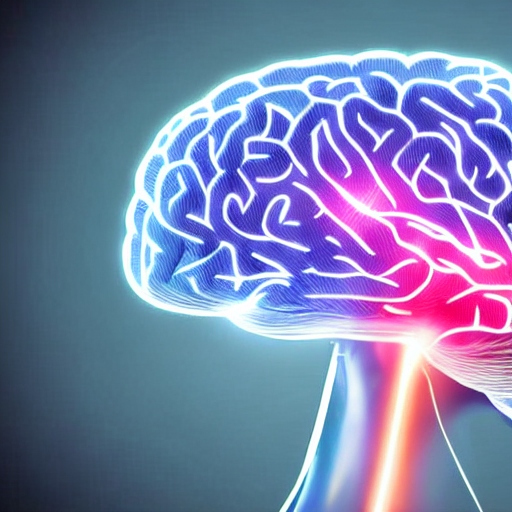In today’s tech-driven world, screens dominate our lives, and so do their side effects. Nearsightedness, or myopia, has become increasingly prevalent, affecting millions worldwide. Addressing this growing concern, Honor, a leading tech company, has introduced a groundbreaking AI-driven defocus technology designed to reverse myopia. This innovation, integrated into everyday devices like smartphones and tablets, promises to reshape how we manage eye health in the digital age.
Understanding the Global Surge in Myopia
The past decades have seen a sharp rise in myopia primarily due to the amount of time people spend staring at screens. It is estimated that by 2050, almost half of the world’s population would have it. As the world continues to digitize, it has become evident that conventional modes such as spectacles or contact lenses may be insufficient for arresting myopia’s steep increase. Here, then, is where Honor’s AI defocus technology comes into play as an alternative vision care solution.
Honor’s innovative AI-powered defocus technology aims to mitigate and potentially reverse myopia by replicating the effects of Defocus Incorporated Multiple Segments (DIMS) lenses. These lenses have been scientifically proven to slow down eye elongation which is one of its primary causes. Instead of depending solely on corrective lenses, Honor’s devices work to consciously protect and improve eye health.
Myopia is a condition that has recently attracted global concern because of its alarming rate ( Bratinger, et al, 2013 ). If no action is taken, by 2050 almost fifty percent of all human beings will be shortsighted (Pan et al., 2016). Additionally,many optometry practices today offer only corrective measures for myopia while some medical researchers argue against their efficacy altogether (Wong & Woon, 2013). Digital devices’ increased prevalence in everyday life seems to have played a significant role in this myopia epidemic (Chong et al., 2012). This situation calls for revolutionary approaches such as Honor’s artificial intelligence defocus device farm which promises greater success than conventional defocus solutions.
To overcome and possibly reverse myopia, Honor’s advanced defocus technology which employs artificial intelligence mimics how DIMS lenses function. Studies reveal that these lenses suppress elongation of the eyeball which is a major factor resulting into this condition. Unlike waiting for people get vision correction spectacles, Honor investicative devices are based on pro-action not reaction; seek proactively maintain or improve eyesight wellness instead.
Honor’s Solution: AI-Driven Defocus Technology
Honor’s latest innovation in AI defocus technology made its debut with the Magic V3 foldable phone and has now expanded to include the Honor MagicPad 2 tablet. This functionality tackles nearsightedness through digitally recreating the effects of DIMS lenses. Consequently, it divides colors while blurring specific areas of the display, thus mimicking what happens when one turns away from bright screens towards far objects; an action that experts recommend but most despise during their everyday usage.
The gadget is unique since it simulates an eye movement that is always spontaneous and therefore, relegated to previous times in life. Different portions of your screen have varied focal points that allow you to continue using your device normally, all the while; it gives a break for your eyes. It demonstrates how this system works via YouTube channel PhoneBuff, illustrating that although this effect cannot be perceived by your eyes, it can help protect our vision over time.
The Increasing Issue of Nearsightedness
When the eyeball elongates to make it possible for closer items to be viewed, nearsightedness is the medical term for that eye condition and prolonged screen time adds makeup into such situation. The problem has been aggravated by modern life style which is characterized with use of smartphones, tablets and laptops. It is a more subtle approach used by Honor which does not require drastic change in people’s behavior but rather embeds itself into their everyday devices. By simulating what happens when focusing on far away objects; the defocus technology helps relieve strain thus preventing myopia from worsening.
To learn more about Honor’s technology, check out these flagship products,
MagicPad 2 and Magic V3: Devices That Care for Your Visuals
Honor Magic V3 and MagicPad 2 come with OLED screens as well as AI-powered scene understanding capabilities. The state-of-the-art algorithms they use are able to monitor screen usage variations and adapt display automatically in order to protect your eyes. Currently available in applications such as YouTube or Amazon Kindle, however, it is expected that this technology will soon be integrated into a broader range of platforms.
Your eyes will be relieved from fatigue when you use the MagicPad 2 since its PWM dimming technology reduces strain by providing a constant brightness experience ideal for persons who are sensitive to flicker. With 4320Hz PWM dimming rate, even the newest iPad Pro models cannot match the comfort of our MagicPad 2 which allows for more extended use on screens. As a result, users can experience lesser fatigue on their eyes despite the prolonged exposure time.
Read further about Honor’s game changing display tech:
Honor MagicPad 2 PWM Technology
Expert Opinions: A Mixed Bag
While Honor’s technology appears to be promising, not all experts entirely believe in its long-term effectiveness. Bhavin Shah who is a behavioral optometrist at Central Vision Opticians notes that although these lenses are good for younger people, they become less effective with increasing age. However, he remains cautiously optimistic saying that this method may be useful but more independent research needs to be done before it can be recommended for everyone.
Moreover, Shah also warns on how Honor’s technology operates through mimicking peripheral defocus which may not have the same impact as real lenses. Even though there may be a possibility of reducing near work induced myopia among some users; this should not make one think it is a panacea. The best ways of protecting eye health include reducing screen time, taking constant breaks and using right screen filters.
Eye Health: The Way Forward
Defocus technology offered by Honor may not serve as a full substitute for conventional solutions; however, it is an important step towards protecting users from the long-term effects of excessive screen time. It is an additional tool in combating myopia in a world dominated by digital screens. This technology has the potential to become an important eye health tool for millions around the globe as it develops and spreads across various devices and applications.
Those who suffer from eye strain caused by extended periods spent staring at screens would be glad to know that Honor’s latest devices hold promise for a more comfortable and healthier way of surfing the net. Nevertheless, according to Dr.James R.Kelly from Kelly Vision Center , healthy habits remain crucial. The twenty-twenty-twenty rule which entails taking a break every twenty minutes and focusing on something that is twenty feet away for up to twenty seconds stands the test of time when it comes to maintaining good eyesight in our digital age.
Conclusion: Honor’s AI Defocus Tech – The Future of Digital Eye Care?
One such route is using AI means to reverse myopia or keep it from changing. Many people may not find this method useful but it provides a new way which may help in dealing with one of the great challenges facing us today as far as eyesight is concerned. Therefore, Honor has chances to design other new smart devices not exclusively meant for entertainment but also promote people’s health as more research emerges and technology develops.
For More Updates : Emerging Technologies



